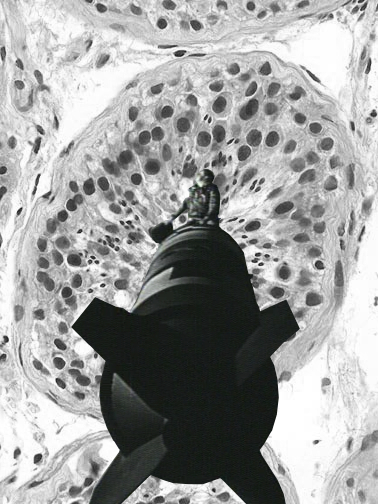Miniature missiles could be silver bullet
 South Australian researchers are working on nanoscale ‘guided missiles’ to seek and destroy cancer cells.
South Australian researchers are working on nanoscale ‘guided missiles’ to seek and destroy cancer cells.
A team at the University of South Australia is developing nanoscale capsules loaded with therapeutic payloads that pass through the blood supply releasing their cancer-limiting agents, only when they meet the tumorous cancer cells.
Research leader, Dr Ivan Kempson says the miniscule capsules have already been developed and demonstrated successfully with two different payloads.
“One of the genes helps to reinstate a mechanism in the cancer cells that enables them to self-destruct,” Dr Kempson says.
“The second one makes the cells produce their own photo-sensitive chemicals so that when exposed to laser therapy, they produce radicals that prompt the cancer cells to self-destruct.”
Dr Kempson says the therapy is being developed to target lung cancer which is responsible for about a quarter of all cancer-related deaths.
“Lung cancer has been a very difficult disease to treat because of the sensitivity of the lung tissue and the importance of lung function,” he says.
Working with mice with aggressive lung cancer tumours, the researchers have already extended life expectancy from 28 to 68 days.
“I think we are making some important steps along the road to finding a better treatment for lung cancer, but the research into the development of sophisticated nanocapsules will have wider applications for gene therapies and play its part in emerging photodynamic therapies.
“Our next step is to secure funding to acquire more pre-clinical data to develop and test the technology and work towards trials in humans.”
Their work so far has been published in Nature Communications.







 Print
Print